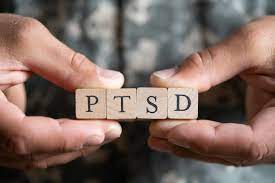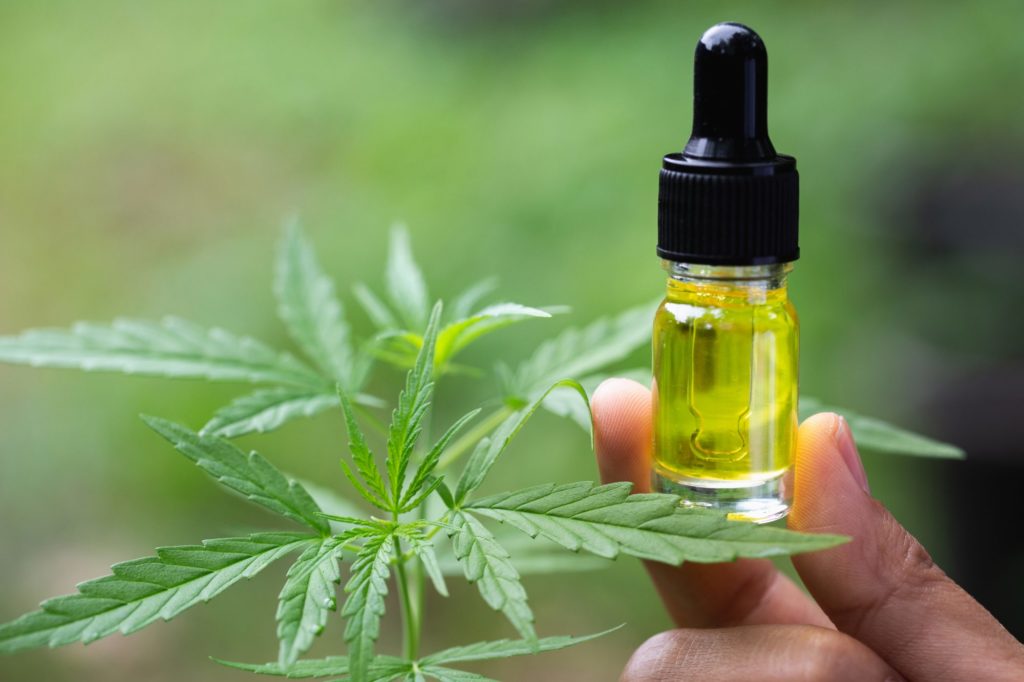Introduction
Post-Traumatic Stress Disorder (PTSD) affects millions worldwide, manifesting as a chronic psychiatric condition following exposure to traumatic events. Traditional treatments include psychotherapy and medication, but recent years have seen a growing interest in Cannabidiol (CBD) as a potential alternative. This 1200-word blog delves into the role of CBD in managing PTSD symptoms.
Understanding PTSD

PTSD is a mental health condition triggered by experiencing or witnessing traumatic events. Symptoms include flashbacks, severe anxiety, nightmares, and uncontrollable thoughts about the event. The complexity of PTSD lies in its varied symptoms and individualized nature of the trauma, making treatment challenging.
What is CBD?

CBD is a non-psychoactive compound found in the cannabis plant. Unlike its counterpart, THC, CBD does not induce a ‘high.’ Its therapeutic properties have garnered attention in the medical community, particularly for anxiety, chronic pain, and inflammation.
CBD and the Endocannabinoid System
The effectiveness of CBD in treating various conditions is partly attributed to its interaction with the body’s endocannabinoid system (ECS). The ECS plays a crucial role in regulating mood, sleep, appetite, and memory – areas often affected in PTSD.
Research on CBD and PTSD
Emerging research suggests CBD’s potential in alleviating PTSD symptoms:
- A 2019 study published in the Journal of Alternative and Complementary Medicine found that oral CBD administration helped reduce PTSD symptoms in adults.
- Another study highlighted CBD’s ability to reduce anxiety and improve sleep – two core symptoms of PTSD.
CBD’s Impact on PTSD Symptoms
1. Reducing Anxiety and Stress
CBD’s anxiolytic properties can be beneficial in managing the heightened anxiety commonly associated with PTSD.
2. Improving Sleep Quality
CBD has shown promise in treating sleep disturbances, a frequent issue for PTSD sufferers.
3. Managing Flashbacks and Nightmares
Early evidence suggests CBD might help in reducing the frequency and intensity of PTSD-related flashbacks and nightmares.
4. Mood Regulation
By interacting with the ECS, CBD can potentially stabilize mood swings and aid emotional regulation.
Advantages of Using CBD for PTSD
CBD (Cannabidiol) has garnered significant attention in recent years as a potential treatment for Post-Traumatic Stress Disorder (PTSD). Here are some of the key advantages of using CBD for managing PTSD symptoms:
1. Non-Psychoactive
Unlike THC, the other well-known compound in cannabis, CBD does not produce a ‘high.’ This makes it a safer option for individuals who want to avoid the psychoactive effects of THC, particularly important for PTSD sufferers who may be more sensitive to anxiety or paranoia.
2. Anxiolytic Properties
CBD has been found to have anxiolytic (anxiety-reducing) effects. This is particularly beneficial for PTSD patients, who often experience heightened anxiety levels. By reducing anxiety, CBD can help manage one of the most challenging aspects of PTSD.
3. Improves Sleep Quality
Many people with PTSD struggle with sleep disturbances, including difficulty falling asleep and nightmares. CBD has shown potential in improving sleep quality, which is crucial for the overall well-being and recovery of PTSD patients.
4. Reduces Hyperarousal Symptoms
PTSD can lead to a state of hyperarousal, where the person is constantly on ‘alert.’ CBD may help in reducing these symptoms, leading to a more balanced state of mind.
5. May Alleviate Other PTSD Symptoms
CBD has also been suggested to help with other PTSD symptoms, such as flashbacks, mood swings, and negative thoughts. It could potentially offer a holistic approach to managing the disorder.
6. Fewer Side Effects
Traditional PTSD treatments, like certain antidepressants, can have significant side effects. CBD is generally well-tolerated, and its side effects are typically mild, making it a more appealing option for long-term use.
7. Acts as a Neuroprotective Agent
Some research suggests that CBD may have neuroprotective properties, meaning it could help protect brain cells from damage. This is particularly relevant for PTSD patients, as the disorder can affect brain regions related to stress and anxiety.
8. Accessibility and Ease of Use
CBD is available in various forms, such as oils, capsules, and edibles, making it easy to use. Its legal status in many regions (when derived from hemp with low THC levels) also makes it more accessible than certain traditional medications.
9. Potential for Fewer Drug Interactions
While CBD can interact with some medications, it generally has fewer interactions compared to many conventional PTSD treatments. However, it’s still important to consult with a healthcare provider before starting CBD, especially if taking other medications.
10. Complementary to Other Treatments
CBD can be used in conjunction with other PTSD treatments, such as psychotherapy. This combination approach can be beneficial, providing a more comprehensive treatment plan.
Choosing the Right CBD Product
The market is flooded with various CBD products, including oils, tinctures, capsules, and edibles. For PTSD, a consistent and measurable dosage is crucial. Full-spectrum CBD products, which contain a range of cannabinoids, might offer the entourage effect, potentially enhancing therapeutic benefits.
Dosage and Administration
Determining the perfect dosage of CBD for PTSD is challenging due to individual variations in response and the lack of standardized dosing guidelines. Generally, it’s recommended to start with a low dose, such as 5-10 mg per day, and gradually increase until the desired effect is achieved.
Monitoring symptoms and side effects is crucial during this process. Some may find relief with doses as low as 10 mg, while others might require up to 50 mg or more per day. Consulting with a healthcare professional experienced in CBD use is essential, as they can provide personalized guidance based on individual health conditions and concurrent medications.
Potential Side Effects and Risks
While CBD is generally safe, potential side effects include nausea, fatigue, and irritability. It can also interact with certain medications, underscoring the need for medical guidance, especially for individuals with pre-existing health conditions or those taking other medications.
Conclusion
CBD presents a promising, non-traditional approach to managing PTSD symptoms. With its ability to potentially reduce anxiety, improve sleep, and stabilize mood, CBD offers a ray of hope for those struggling with this complex disorder. However, more extensive research and clinical trials are necessary to fully understand its efficacy and long-term effects. As with any treatment, consulting with healthcare professionals before starting CBD is crucial for safe and effective use.
